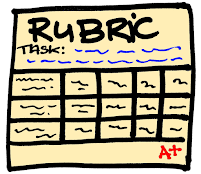As an advocate of teaching primary school students to
write well, my teammates and I recently had the
honor of conducting a workshop on the intriguing
genre of persuasive writing for student- teachers.
In essence, persuasive writing enables students to thoughtfully and persuasively convey
their thoughts. Students can use this genre to strengthen their critical thinking skills, express
their opinions, and stand up for what they believe in. The primary goal is to develop
 talented writers who can persuade and interest their audience
talented writers who can persuade and interest their audience
with well-written ideas.
The workshop delved into the essential elements of persuasive
writing, emphasizing the importance of a hook, cue words,
supporting evidence, and a compelling call to action just to
name a few. The goal was to guide students-teachers in
shaping writers capable of constructing persuasive pieces with depth
and coherence.
To bring the genre to life, engaging activities were
integrated into the workshop. Through role-playing
exercises, student- teachers were able to personally witness
the effects of persuasive techniques. Collaborative writing
exercises encouraged the exchange of ideas and
approaches for responding to opposing viewpoints. These
activities aimed to make the learning experience dynamic and applicable to real-world
situations.
 Assessing persuasive writing involves evaluating not only
Assessing persuasive writing involves evaluating not only
the final product but also the process. The workshop
introduced assessment strategies that focus on content,
organization, and the effectiveness of persuasion. The
student-teachers were equipped with example rubrics that
can help guide them in providing constructive feedback, fostering a growth mindset among
student writers.
The writing process was highlighted as a framework for developing persuasive pieces.
Participants listened keenly as the presenter addressed how prewriting , drafting, revising,
editing, and publishing contribute to the overall quality of persuasive writing. While
emphasizing that writing is a process that evolves the workshop
also encouraged teachers to patiently and supportively walk children
through each step. Also we seamlessly integrated the 6+1 traits of writing
this too can be an effective framework for writing development.
To illustrate the diversity within persuasive writing, sample pieces were shared for both
lower and upper primary levels. These examples showcased age-appropriate language,
relevant topics, and effective persuasive techniques. By examining these samples, student-
teachers gained insights into tailoring their instructional approach based on the
developmental stage of their students.
To sum up, the workshop's aim was to empower teachers to be passionate about persuasive
writing while arming them with the knowledge and resources to nurture their students to be
an effective writer of persuasive pieces.
Shannese👊







Greetings, Shannese! This post offers valuable insights that are relevant to both educators and learners. In addition to introducing effective assessment strategies, this post emphasizes the writing process and the 6+1 characteristics, thereby offering a comprehensive approach. The incorporation of sample pieces tailored to various primary levels provides educators with practical knowledge, enabling them to motivate students to produce persuasive writing that is effective. Thank you
ReplyDeleteHi fellow blogger:) Superb blog post! You've provided insightful information that is applicable to both we as teachers and to students on a whole. Additionally, you provided a thorough breakdown by emphasizing the writing process and the 6+1 qualities and introducing effective assessment tools. As one who had the privilege of being a part of your workshop, the inclusion of model essays that are suited to different primary school grades gives teachers real-world experience and helps to inspire students to write well-argued persuasive essays.
ReplyDeleteHi fellow blogger:) Superb blog post! You've provided adequate information that is applicable to both we as teachers and to students on a whole. i also loved that you provided a thorough breakdown the writing process and the 6+1 and how they can be included in the genre and introducing us to effective assessment tools. As one who had the privilege of being a part of your workshop, the inclusion of model essays that are suited to different primary school grades gives teachers real-world experience and helps to inspire students to write well-argued persuasive essays.
ReplyDeleteHi Shannese, with a focus on holistic writing development, you give teachers the tools they need to support and guide students in writing persuasively and produce high-quality work. Through interesting exercises, collaborative projects, and assessment strategies, your blog demonstrates a commitment to authorship and teacher growth.
ReplyDeleteGreeting my fellow blogger! I read your blog post, and I am really impressed. I always found it hard as a writer to persuade others, but now I can say confidentially and confidently say, " I will never have that problem again!". You have provided me with valuable information as to what I need to do to ensure that my persuasive essays are perfect! Great Job and continue to blog!
ReplyDeleteHi Shannese , In reading your post on persuasive writing I can now say it has become clearer to me about writing a persuasive piece , I also love how you highlighted using a rubric to use when doing persuasive writing.Excellent
ReplyDelete